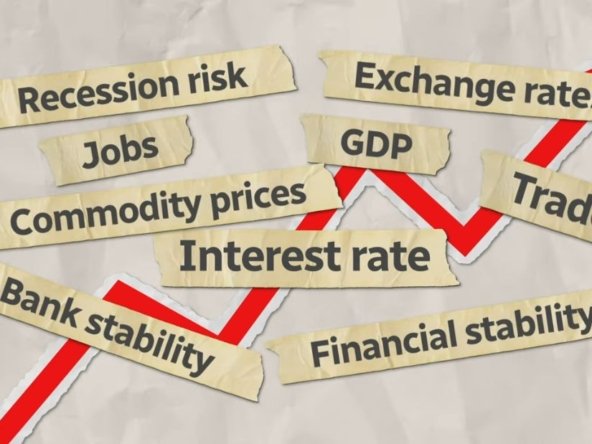The Canadian real estate market in July 2025 presented a mixed picture. While national prices dipped slightly, several urban markets, especially Toronto and Vancouver, saw a modest uptick in both listings and buyer activity. This blog will break down the latest market values, what it mean for buyers and sellers, and how regional markets are performing.
Let’s explore the data-driven trends shaping Canada’s property landscape.
National Real Estate Overview – July 2025
In July 2025, the national average home price in Canada settled at approximately $691,643, marking a 1.2% decrease from June 2025. However, this drop was expected following seasonal fluctuations and slight corrections post spring rush.
Key stats:
- Average price: $691,643 CAD
- Monthly change: -1.2%
- Annual change: +2.8%
- New listings: +5.3% compared to June
- Sales-to-new listings ratio: 56% (balanced market)
Despite minor pricing corrections, demand remains steady in most metropolitan areas thanks to low-interest rates and strong immigration trends.
Market Performance by Major Cities
Toronto (GTA)
The Greater Toronto Area (GTA) recorded an average home price of $979,000, with detached homes still hovering above the $1.3 million mark in popular suburbs.
- Sales activity: ↑ 13% from June
- Listings: ↑ 6.1%
- Condo segment: Strong demand from first-time buyers and investors
- Rental market: Tight, with vacancy rates under 1.5%
Buyers have shown strong interest in east-end areas like Scarborough and Pickering, where relative affordability attracts young professionals and families.
Vancouver
Vancouver’s real estate remains competitive:
- Average price: ~$1,180,000
- Detached homes: Over $1.7M
- Condo price growth: +1.8% MoM
- Inventory: Limited supply pushing bidding wars
The West Coast city continues to draw interest from international investors, especially from Asia and the Middle East.
Calgary
Calgary stands out as one of the most affordable large markets in Canada:
- Average home price: ~$530,000
- Sales volume: ↑ 9%
- Migration trend: Inter-provincial migrants from Ontario and BC are fueling demand
The energy sector’s moderate recovery is also playing a role in improving local buyer confidence.
Why Are Prices Dipping Nationally?
The national average is slightly down, but it’s not due to a market crash. Here’s what’s driving the slight correction:
- Seasonal Slowdown: July and August are typically slower months after a busy spring.
- Buyers Pausing: Some buyers are waiting to see if interest rates drop further in Q4.
- More Listings: With more homes on the market, buyers have negotiating power.
- Balanced Market: Most cities are no longer in “seller’s market” mode.
This cooling is healthy and provides opportunities for those who were previously priced out.
Forecast for Fall 2025
As we move into the fall, several trends may unfold:
- Prices may remain flat or decrease by 1–2% in urban cores.
- Interest rates are likely to hold or drop slightly.
- Rental demand expected to increase with post-summer relocations.
- Immigration will continue to add housing demand, especially in the GTA and Vancouver.
According to analysts, first-time homebuyers could see better entry points before 2026.
Buyer & Seller Insights – July 2025
For Buyers:
- Consider buying in suburbs like Milton, Surrey, or Ottawa South for value.
- Get pre-approved before fall demand picks up.
- Watch mortgage trends—variable rates may become favorable again.
For Sellers:
- Price realistically—overpriced homes are sitting longer.
- Invest in staging and professional photos.
- Highlight home office space and outdoor amenities—still high-value features post-pandemic.
Real Estate Strategy Tips (Backed by Data)
Here’s how real estate investors, agents, and homebuyers should approach the current market:
- Use MLS trends to study neighborhood performance.
- Look at school zones, as they influence long-term property value.
- Track rental yield in your investment zone.
- Focus on properties with low maintenance costs, especially in rising utility-rate environments.
Provincial Spotlight – Summary Table
| Province | Avg Price (July 2025) | Market Trend |
| Ontario | $865,000 | Stable |
| British Columbia | $1,030,000 | Seller’s market |
| Alberta | $488,000 | Rising |
| Quebec | $455,000 | Slight cooling |
| Nova Scotia | $380,000 | Price rebound |
Frequently Asked Questions
Is it a good time to buy in Canada?
Yes, if you’re a first-time buyer or investor, this period offers balanced conditions, especially outside of major urban cores.
Will interest rates go up again?
Experts predict a hold or slight decrease in rates by late Q3, based on inflation control progress.
Where are the most affordable cities?
- Calgary
- Winnipeg
- Halifax
- London, ON
The Canadian real estate market in July 2025 reflects a balanced phase—prices are correcting slightly, yet activity is healthy, and long-term fundamentals remain strong.
Whether you’re looking to buy, sell, or invest, the current market offers a window of opportunity—especially before fall activity heats up again. Watch local data, stay informed, and make data-driven decisions.





